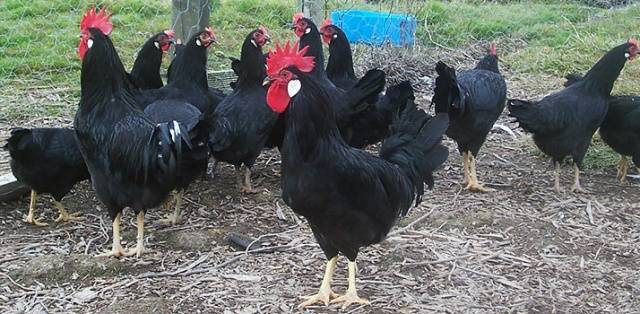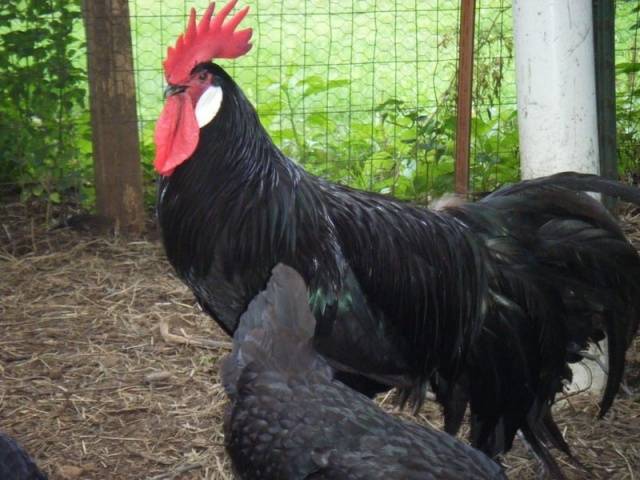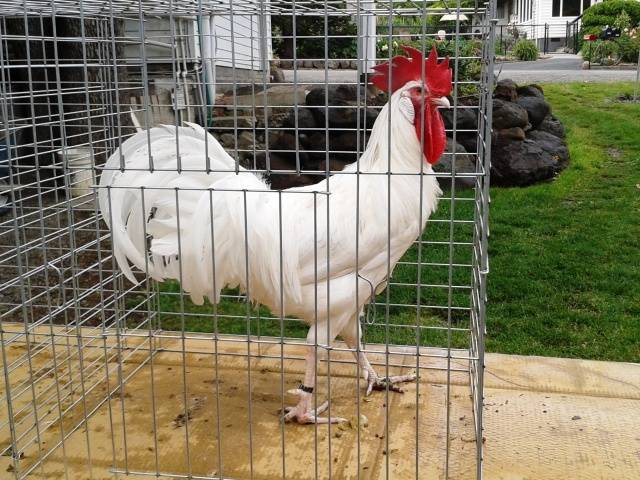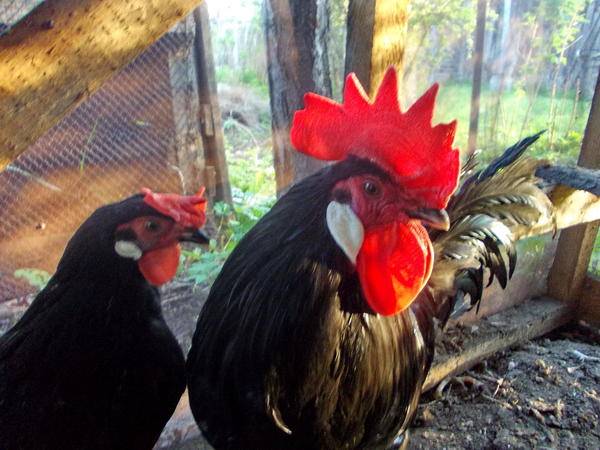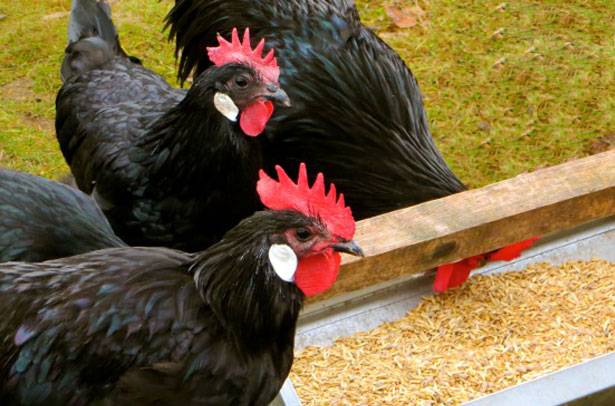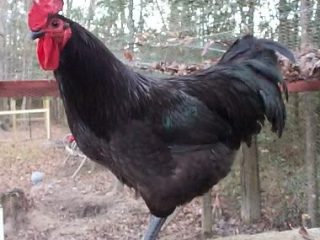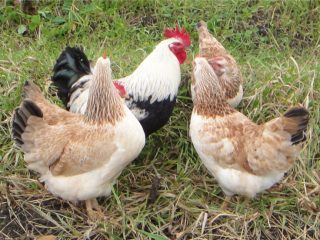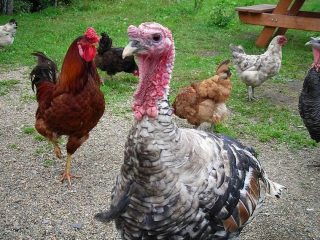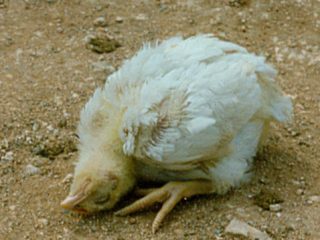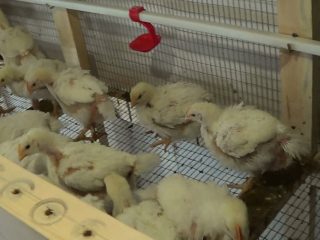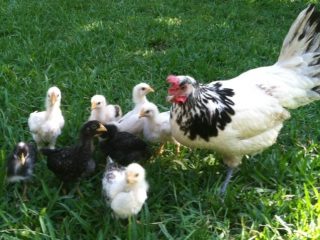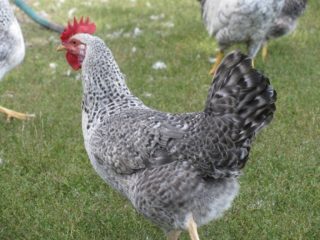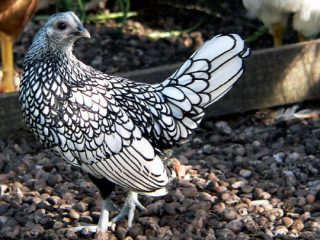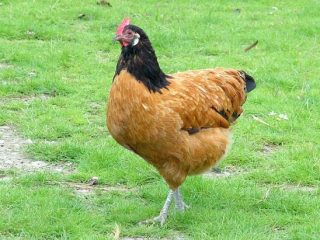Chicken breed Minorca comes from the island of Menorca, which is located in the Mediterranean Sea and belongs to Spain. Local breeds of chickens from the island of Menorca were crossed with each other, resulting in a breed that was egg-laying. The eggs were very large and tasty.
During the British occupation in the early 18th century, Minorca chickens were exported to Britain. English breeders tried to apply the method of directed selection to the breed in order to increase the weight of chickens. But all efforts ended in failure. From England, chickens came to Germany, and from there to America. Chickens appeared in Russia in 1885; it is known that they were given as a gift by the Turkish Sultan. It was only in 1911 that the breed was standardized in Russia.
External data
The head is small, elongated, connected to an elongated neck. The comb is leaf-shaped, bright red, with 5-6 clearly cut teeth, erect in roosters, curved to the side in chickens. The shape and size of the crest were one of the conditions in the formation of the appearance of the minors. Minor cats have oval, white earlobes. Eyes black or brown.
The back is wide and elongated into a full, well-developed tail. The chest is wide and rounded. The body is elongated, trapezoidal.High legs graphite color. The wings are well developed, tightly pressed to the body. The body has white skin. The claws and beak are dark in color. The color of the feathers is rich black with a greenish tint. The combination of shiny black plumage with a bright red crest and bright white earlobes makes the Minorca bird one of the most beautiful. Look at the photo to see what black minors look like.
It is possible, although extremely rare, to have white Minorkas. In white minoras, the crest may have a pink shape. The beak, metatarsals and claws are light in color, the eyes are red. Only a silver tint in color is allowed, other shades are outside the standard. The photo below shows a White Minorca rooster.
Product characteristics
Minorca chickens are egg-laying. But the meat obtained from them is of very high quality.
- Live weight of a rooster up to 4 kg, chicken up to 3 kg;
- Laying hens produce up to 200 eggs per year;
- Egg weight up to 70 g, eggs are white, with a dense, smooth shell;
- They begin laying eggs at 5 months;
- High fertility of eggs and safety of young animals;
- Chickens grow very quickly.
Breeding Features
When breeding a breed, it is necessary to take into account some special properties of the bird.
- Minorcans come from an island with a mild Mediterranean climate. Therefore, representatives of the breed can survive the Russian winter only in warm heated poultry houses. Avoid high humidity and drafts in the room with birds. Minor women react very badly to them.
- In summer, it is mandatory to organize a place for walking. Next to the poultry house organize a spacious enclosure for walking. Stretch mesh or make a high fence up to 1.6 m;
- The disadvantages of the breed include the fact that Minorca chickens have completely lost their brooding instinct;
- Birds are very shy, you cannot approach them, they do not contact the person. But they coexist quite peacefully with other breeds of chickens. Experienced poultry farmers advise rubbing the combs with fat to prevent frostbite.
- Chickens are selected for breeding at an early age based on vital signs. A little later on external data to maintain exterior standards. Hens at 5 months of age with the beginning of egg production, and cockerels when their comb begins to grow;
- Eggs for further breeding are taken from chickens that have reached 2 years of age.
- Chickens are fed the same as normal chickens. First, crushed boiled egg, gradually add bran, crushed grain, grated vegetables and chopped herbs.
- Adults are fed with mixed feed or a mixture of several types of whole grains, adding vitamins and calcium.
- Availability of animal feed is important for birds: meat and bone or fish meal, cottage cheese.
Compliance with breeding characteristics will lead to a good result: the chickens will be healthy and capable of producing viable offspring. The productive characteristics of the breed will not be affected: egg production and meat, which is valued among Minorkas for its high taste.
Conclusion
Breeding the Minorca breed is more suitable for private farms, where the beauty of the bird is an important element for poultry farmers. If you can provide the bird with a warm house, a spacious enclosure for walking and proper nutrition, then feel free to start breeding minorkas. About the Minorca breed, watch the video:
